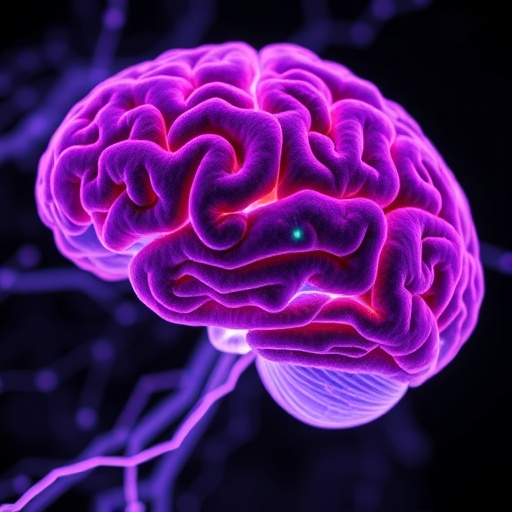Groundbreaking Study Unveils Link Between Brain G6PD Deficiency and Schizophrenia-Like Behaviors
In a remarkable advancement that challenges existing paradigms in neuropsychiatric disorders, a new study published in the prestigious journal Translational Psychiatry reveals that deficiency of glucose-6-phosphate dehydrogenase (G6PD) specifically within the brain induces schizophrenia-like behaviors and synaptic dysfunction. This discovery sheds light on previously uncharted molecular mechanisms that underpin complex psychiatric conditions, opening avenues for innovative therapeutic strategies.
G6PD, an enzyme best known for its critical role in the pentose phosphate pathway and cellular redox homeostasis, has long been studied predominantly in the context of hematological disorders. However, this latest research spearheaded by Wang YB and colleagues redirects attention to its cerebral functions, illustrating how its insufficiency in neural tissue could precipitate profound neurobehavioral abnormalities.
The study meticulously details the cascade whereby cerebral G6PD deficiency compromises synaptic integrity and neural circuitry associated with schizophrenia. Researchers utilized genetically engineered animal models with targeted deletion of G6PD in brain cells, thereby isolating its neural-specific effects away from systemic influences. Behavioral assessments demonstrated marked deficits mirroring hallmark symptoms of schizophrenia, such as social withdrawal, impaired cognitive flexibility, and aberrant sensorimotor gating.
Molecular analyses confirmed that G6PD loss triggers oxidative stress imbalance within neurons, leading to downstream disruptions in synaptic proteins essential for neurotransmission fidelity. This oxidative milieu ostensibly perturbs actin cytoskeletal dynamics and vesicular trafficking, which are critical for synaptic plasticity and communication. The study’s findings elegantly link redox dysregulation and synaptic failure, proposing a novel mechanistic pathway contributing to psychiatric manifestations.
Importantly, the research highlights that restoring redox balance pharmacologically or via gene therapy approaches can mitigate the synaptic and behavioral abnormalities, underscoring therapeutic promise. These interventions offer hope for new modalities that complement traditional dopamine-centric treatments of schizophrenia, potentially addressing treatment-resistant symptoms that have long frustrated clinicians.
The implications of these findings extend beyond schizophrenia. Since oxidative stress and synaptic dysfunction are common threads in numerous neuropsychiatric and neurodegenerative disorders, G6PD’s role in maintaining neuronal health may be far-reaching. This study invites a reevaluation of metabolic enzymes like G6PD as critical players in brain function, rather than mere peripheral actors.
Furthermore, this research exemplifies the intricate interplay between metabolism and mental health, advocating for a systems biology perspective to decode neuropsychiatric complexities. It reveals that enzymes pivotal in cellular metabolism wield immense influence over neural circuit homeostasis, influencing behavioral phenotypes intricately linked to psychiatric syndromes.
The study harnessed sophisticated neurogenetic tools, behavioral paradigms, electrophysiological recordings, and biochemical assays to present a comprehensive picture of how G6PD deficiency orchestrates schizophrenia-like pathophysiology. The convergence of these multidisciplinary approaches lends robustness and depth to the conclusions drawn.
In molecular terms, the deficiency impairs NADPH production, thereby compromising the cell’s ability to neutralize reactive oxygen species (ROS). Elevated ROS fosters oxidative damage to synaptic components, attenuating synaptic plasticity mechanisms implicated in learning and memory. The data aligns with emerging evidence that redox imbalances are central etiological drivers in schizophrenia.
Equally compelling is the study’s revelation that the cerebellum and hippocampus are particularly vulnerable brain regions to G6PD deficiency. These regions are critical substrates for cognitive processing and emotional regulation, often disrupted in neuropsychiatric illness. This regional specificity provides anatomical context relevant for symptomatology.
Notably, the authors also explore how G6PD interacts with glutamatergic neurotransmission, revealing its indirect modulation of NMDA receptor functionality, a receptor implicated in schizophrenia’s neurobiology. This finding could bridge metabolic and neurotransmitter hypotheses of psychiatric disorders, suggesting new molecular targets.
The translational relevance is underscored by evidence that human patients with G6PD mutations exhibit subtle neuropsychiatric symptoms, although this study is the first to delineate a causal relationship in a controlled experimental setting. Future clinical investigations may unravel biomarkers linked to cerebral G6PD activity, potentially guiding diagnosis and personalized therapies.
In an era where mental health disorders remain a global challenge with significant unmet needs, this illuminating research offers a fresh perspective and tangible hope. By elucidating a metabolic vulnerability within the brain that drives complex behavioral phenotypes, Wang and colleagues have expanded the scientific horizon for schizophrenia research and beyond.
As the neuroscience community digests these findings, the emphasis on metabolic enzymes as key modulators of brain health may inspire novel research trajectories integrating metabolism, neurochemistry, and behavioral science. Ultimately, this discovery marks an important milestone advancing our understanding of the biological roots of mental health disorders.
Subject of Research: G6PD deficiency in the brain and its role in inducing schizophrenia-like behaviors and synaptic dysfunction.
Article Title: G6PD deficiency in brain induces schizophrenia-like behaviors and synaptic dysfunction.
Article References:
Wang, YB., Xie, PX., Mei, WY. et al. G6PD deficiency in brain induces schizophrenia-like behaviors and synaptic dysfunction. Transl Psychiatry 15, 441 (2025). https://doi.org/10.1038/s41398-025-03631-w
Image Credits: AI Generated
DOI: https://doi.org/10.1038/s41398-025-03631-w




